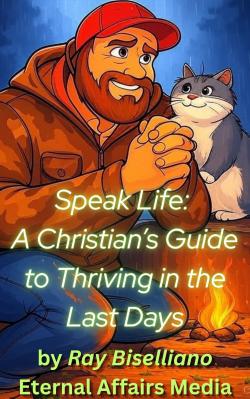You DO Have The Power to Make A Difference
America’s Blessings: How Religion Benefits Everyone, Including Atheists
by Anthony Weber | Faithwriters 2/01/2016
[playht_listen_button inline=”yes” tag=”p”]
Christopher Hitchens claimed religion poisoned everything; Dawkins has compared a religious upbringing to child abuse. Are they right? Are religious groups really such a threat that these kinds of measures should be taken? Sociologist Rodney Stark draws from an impressive range of studies to make the case that the opposite is true. Religion specifically evangelicalism helps everything it touches to flourish.
Stark, a sociologist of religion, began his professional life as a research sociologist at the Survey Research Center and at the Center for the Study of Law and Society. He has since worked at the University of Washington and more recently at Baylor University. He has written over 30 books (two of which won the Distinguished Book Award from the Society for the Scientific Study of Religion) and published over 140 scholarly articles.
He has described his early stance toward religion as that of an agnostic incapable of religious faith; in 2004, he claimed neither faith nor atheism; in 2007, he described himself as an “independent Christian.” In other words, he spent years studying a worldview that he often did not support before aligning himself with the Christian faith. One would think that his long (and thoroughly researched) path from skepticism to belief at least affords him the dignity of being taken seriously.
His book is not meant to be an apologetic for the Christian faith. It does not argue that Christianity is true. Mr. Stark merely makes a well-informed case that by multiple measures of what is popularly called ‘human flourishing,’ Christianity is the solution we’ve been looking for, not the problem we should be seeking to avoid.
This review will merely touch on a few of the topics into which Mr. Stark delved deeply. I do not cite all his sources in this post; if you have opportunity to read the book, you will see that he provides extensive footnotes from reliable studies to confirm his statements.
CRIME
He notes that a “large body of solid research shows a positive effect of religion on reducing crime, deviance, and delinquency often a very strong effect.” But if America is an exceptionally religious nation, why are our crime rates higher than those of less religious nations? His answer: “They aren’t.”
Since the early 1930s, the FBI has reported all crimes reported to them, which is eventually published in the Uniform Crime Report. The Europeans quit doing this in 2006, when Interpol stopped publishing national crime statistics and withdrew the previous reports, apparently because the data was fairly unflattering for European nations.
“Denmark has nearly two-and-a-half times as many burglaries per 100,000 population as does the United States, while the U.S. rate also is exceeded by Austria, Switzerland, the United Kingdom, Sweden, Belgium, and the Netherlands. Comparing theft rates Sweden has a rate twice as high as that of the United States and that Denmark, the United Kingdom, Norway, Germany, and Finland also have higher theft rates. As for ‘violent America,’ the assault rate in Sweden is about three-and-a-half times that of the United States, and the rates also are far higher in the United Kingdom, Belgium, Finland, Germany, Ireland, the Netherlands, Portugal, and France.”
Unsurprisingly, the United States leads in murder. “In 2008 the U.S. rate was 5.1 per 100,000 population, compared with 2.5 in Finland, 2.2 in Scotland, 2.0 in Ireland, 1.8 in Belgium, 1.4 in Denmark and France, 1.2 in Italy, and 0.5 in Austria.” European nations report high attempted murder rates, but their lack of guns keeps the number of actual murders in check.
“As for church attendance, those who never attend are about four times as likely to have been picked up as those who attend weekly. As is well known, men are more likely than women to get in trouble with the law, but the church attendance effect is strong for both sexes. Similarly, African Americans are more likely than whites to have been picked up, but within both races the weekly church attenders are far less likely to have been picked up than are those who never go to church. In addition the religious effect remains very strong within levels of education and income [and] in every major region of the country.”
“There is a correlation between church attendance and crime. The higher a city’s church membership rate, the lower its burglary, larceny, robbery, assault and homicide rate.”
MARRIAGE AND FAMILY
“In America, the higher fertility of the religious majority makes up for the low fertility of others. Thus, one of the primary blessings of American faith is that we are not faced with the many problems resulting from a shrinking population.”
“But in every nation, the percentage favoring a family of three or more children was strongly related to church attendance. As these findings indicate, Europe’s lack of fertility is directly attributable to its lack of religiousness.”
“Among adults ages 30 to 45the prime marriage yearspeople who never attend church are twice as likely as the weekly attenders to have never married or to currently be divorced or separated.”
“The more frequently parents attend church, the warmer and more expressive is their style of parenting. Fathers who attend church more frequently are more likely to praise and hug their children. An extensive study has revealed that religion strongly influences fathers’ involvement in youth-related activities, such as coaching sports teams or leading Scout troops.”
“The more often their parents attended church, the more satisfied teenagers were with their family. The greater the importance their parents placed on religion, the more satisfied teenagers were with their family. If their parents were conservative Protestants, teenagers were more satisfied with their family. The more often teenagers attended church, the more satisfied they were with their family. The greater the importance teenagers placed on religion, the more satisfied they were with their family. These relationships held equally strongly for both male and female teenagers.”
“Active members of conservative Protestant denominations are more likely than members of other denominations to spank their children. There is nothing to suggest that these spankings are severe or abusive. Active members of conservative Protestant denominations are less likely to yell and shout at their children. Keep in mind that despite being more likely to spank, conservative Protestant parents enjoy closer relationships with their children.”
EDUCATION
“Americans who never attend church are significantly less likely to have finished high school than are those who attend weekly. Moreover, overwhelming evidence exists that not only do religious people care more than the less religious about their children’s education, but they see to it that the children learn more.”
“The more religious the student, the better his or her school performance and the higher their achievement scores. This is especially true for African American and Hispanic students while all students benefit substantially as compared with their peers at public schools, African American and Hispanic students benefit most.”
“On every subject, on every test, and at every grade level, homeschooled students substantially outscored their public and private school counterparts On average, homeschooled children in grades one through four perform one grade above their public and private school counterparts. Then the gap widens so rapidly that by the eighth grade, the average homeschooled student performs at four grade levels above the national averagethat is, eighth-graders perform at the level of high school graduates. The more years a student is homeschooled, the higher his or her achievement scores Sixty-five percent of homeschooling parents belong to a conservative Protestant denomination.”
“Religious students have a superior level of academic achievement, however it is measured. Compared with less religious students, religious students score higher on all standardized achievement tests. Get better grades. Are more likely to do their homework. Are less likely to be expelled or suspended. Are less likely to drop out of school… the religious effect on school achievement holds even more strongly for African American and Hispanic students.”
“Evangelical Protestants were second only to Jews in being college-educated, significantly exceeding all other religious groups as well as the nonreligious.”
“The more often students attended church, the more likely they were to enroll in college.”
“Among both whites and African Americans, weekly attenders are more likely than those who never attend church to have gone to college and less likely to have not completed high school. Although the differences are not large, they are very significant statistically. The idea that churchgoers tend to be less educated is false.”
SEX
After a fascinating section on how the Puritans in early America were not the repressed, uptight, sexually frustrated people so many think they were, Mr. Stark offered some interesting states about the current state of sex lives in America.
“Conservative Protestants (men and women) reported having sex more often than any other group, while liberal Protestants had sex least often. Those without religion were next to lowest in their frequency of sex.”
“Conservative Protestant women were far more likely than others to ‘always’ have an orgasm during sex with their husbands (or live-in partner), while those without a religious affiliation were by far the least likely to do so.”
“Another study based on married, observant, American Orthodox Jewish women found that they had intercourse more frequently than did the average married American woman (as reported in the survey above) and about as frequently as conservative Protestant wives.
Conservative Protestant women were far more likely than others to report that they were “extremely” physically satisfied with their sex lives; the irreligious were least likely to give that response.”
“Conservative Protestant women also were the group most likely to say they were ‘extremely’ emotionally satisfied with their sex lives, and here, too, the irreligious were the least likely to give that answer.”
“The higher a city’s church membership rate, the lower its rape rate [and] rate of sexually transmitted diseases.”
“Religiousness does delay premarital sex, but without any of the lasting repressive effects proclaimed by so many sexperts. That point seems clear in that, once they have married, religious Americans, and especially women, have superior sex lives; they have sex more often, more reliably achieve orgasms, and express greater emotional and physical satisfaction with sex.”
EMOTIONAL HEALTH
“The more often that Americans attend church, the more likely they are to be happy 40 percent of the weekly attenders say they are very happy compared with 25 percent of those who never attend. Conversely, those who never attend (18 percent) are twice as likely to say they are not too happy as are those who attend weekly (9 percent).”
“They are less subject to depression and neurosis They are healthier They are more sociable and more apt to have and to form career-advancing relationships.”
“Today most Western European nations, being less religious than America, have suicide rates far higher than that of the United States. The annual American suicide rate hovers around 11.0 per 100,000, compared with 21.1 in Belgium, 20.0 in Finland, 18.0 in France, and 17.4 in Switzerland (the Russian rate is a shocking 34.3).”
“The higher the church membership rate [in a city] the lower its suicide rate.”
GENEROSITY
“In all parts of the world, and within each of the five major faiths, people who “attended a place of worship or religious service in the past seven days” score higher on a generosity index than do nominal members of their faith who had not.”
“62 percent of weekly attenders said they had done volunteer work in the past year, compared with 35 percent of nonattenders.”
THE INTELLECT AND THE ARTS
“More than a fourth of weekly attenders devote two or more hours a day to reading, compared with 19 percent of those who never attend. Only 2 percent of weekly attenders do not read, compared with 10 percent of those who never go to church.”
“Weekly [church] attenders place more importance on high culture (painting, music of all kinds, dance, theater, and creative literature) than do nonattenders.”
“The irreligious were almost three times as likely as were the most religious students to place ‘great value’ in ‘Tarot readings, sances, and psychic healing.’ Two-thirds of the irreligious agreed that ‘UFOs are probably real spaceships from other worlds,’ compared with 40 percent of the most religious students… those who hope that a decline in traditional religion would inaugurate a new Age of Reason ought to think again.”
“Traditional Christian religion greatly decreases credulity as measured by belief in the occult and the paranormal. In contrast, education has no effect. For those concerned about shielding young people from the prevalent occult and paranormal beliefs in our society, it would seem unavailing to send them to college, but quite effective to have them attend a conservative Sunday school.”
CONCLUSION
“They are far less likely to be handicapped by having police records. They are far more likely to display attractive personal characteristics such as niceness and generosity. They are less likely to come from broken homes, and more likely to have been raised to develop self-discipline and responsibility. They are far less prone to messy and expensive divorces, to premarital pregnancies, and extramarital scandals. They are less subject to depression and neurosis, both of which can devastate careers. They are healthier, hence less subject to absenteeism, and probably they are more energetic. They are more sociable and more apt to have and to form career-advancing relationships. In short, religiousness is not merely a matter of private belief or of spending an hour every week sitting in a pew. It is a comprehensive lifestyle that involves participation in extended social networks.”
Once again, this is not an argument that Christianity is true. It is also not an argument that every person who claims to be religious (or irreligious) fits neatly into this template (as the statistics themselves make clear). Mr. Stark is simply showing that as a group, those who claim to be religious (specifically Christian) and consistently engage in what he calls “moral communities” flourish in ways that other groups apparently do not.
That’s not the gospel, but it is good news.
Article Source: Faithwriters
Anthony Weber is a pastor, teacher, husband, father, author and blogger (nightfallsandautumnleaves.blogspot.com; learningtojump.blogspot.com; empiresandmangers.blogspot.com). You can contact Anthony at [email protected]












